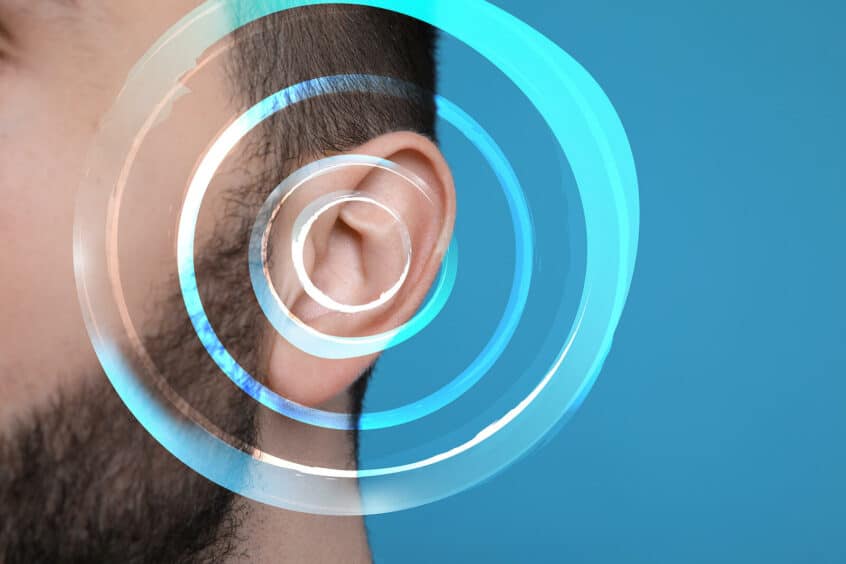Finding Relief from Tinnitus: Strategies and Support

Tinnitus, described as a persistent ringing, buzzing, or hissing sound in the ears, can often cause distress. Many people experience tinnitus to varying degrees, significantly affecting their quality of life. However, there are ways to find tinnitus relief and improve overall well-being.
Understanding Tinnitus
Before researching potential strategies for tinnitus relief, it’s important to better understand tinnitus. Tinnitus can be categorized into two types:
Subjective Tinnitus: This is the most common form of tinnitus, where only the person experiencing it can hear the sounds. It is often linked to underlying hearing loss, exposure to loud noises, or certain health conditions. We often refer to this type of tinnitus as the brain “sounding the alarms” that something is not quite right.
Objective Tinnitus: In very rare cases, a healthcare professional can hear the sounds by using a stethoscope. This type of tinnitus is typically caused by specific vascular or muscular issues.
Tinnitus can manifest as a wide range of sounds, including ringing, buzzing, whistling, roaring, humming, or even musical tones. It may be constant or intermittent and can vary in intensity.
10 Strategies for Tinnitus Relief
While there is no silver bullet for tinnitus, various strategies can help individuals manage and alleviate their symptoms. Here are some effective approaches to consider:
- Consult a Hearing Health Specialist: The journey to effectively treating tinnitus starts with your hearing healthcare provider. They can identify the underlying causes and recommend appropriate treatments.
- Hearing Aids: If your tinnitus is associated with hearing loss (in most cases it is), hearing aids can be a game-changer. These devices not only enhance your hearing but can also provide relief from tinnitus by making external sounds more audible, diverting your focus away from the internal noise.
- Sound Therapy: Sound therapy involves using external sounds to mask or distract from the internal tinnitus noises. White noise machines, nature sounds, or specially designed apps can help create a soothing environment that reduces the perception of tinnitus.
- Cognitive Behavioral Therapy (CBT): CBT is a type of talk therapy that focuses on changing thought patterns and behaviors. It can help individuals develop coping strategies and reduce the emotional distress associated with tinnitus.
- Relaxation Techniques: Stress and anxiety can exacerbate tinnitus symptoms. Practices like meditation, deep breathing, and progressive muscle relaxation can help reduce stress and improve tinnitus-related discomfort.
- Tinnitus Retraining Therapy (TRT): TRT combines counseling and sound therapy to help individuals habituate to tinnitus. Over time, the perception of tinnitus becomes less intrusive, and emotional reactions diminish.
- Diet and Lifestyle Modifications: Reducing caffeine and alcohol intake can sometimes help individuals experience relief from tinnitus. Adopting a healthier lifestyle that includes regular exercise may also contribute to improvements.
- Avoid Loud Noises: Protect your hearing by avoiding loud environments and using ear protection when needed. Prolonged exposure to loud noises can exacerbate tinnitus.
- Limiting Earwax Buildup: In some cases, tinnitus is linked to excessive earwax. Regular ear cleaning by a healthcare professional can help alleviate these symptoms.
- Support Groups: Tinnitus support groups provide a sense of community and shared experiences. They can offer emotional support, coping strategies, and information on the latest treatments.
Coping with Tinnitus
It’s important to remember that you are not alone in your tinnitus journey. Many individuals have found relief and effectively managed their tinnitus symptoms. While complete silence might be elusive, living with tinnitus doesn’t have to be a drag. With the right strategies, support, and resources, you can regain control and find the relief you deserve.
Find Tinnitus Relief
Finding relief from tinnitus often requires a combination of strategies tailored to your specific needs. If you have both hearing loss and tinnitus,the single most effective treatment option for tinnitus is to preserve the nervous system by restoring sound stimulation to the ear and the brain. Properly fit hearing aids can better stimulate the brain to help you find relief from the constant tinnitus sounds.
Whether you’re looking for the latest research or seeking support, we’re here to assist you in your tinnitus journey. Together we’ll explore various treatment options and help you find tinnitus relief.
